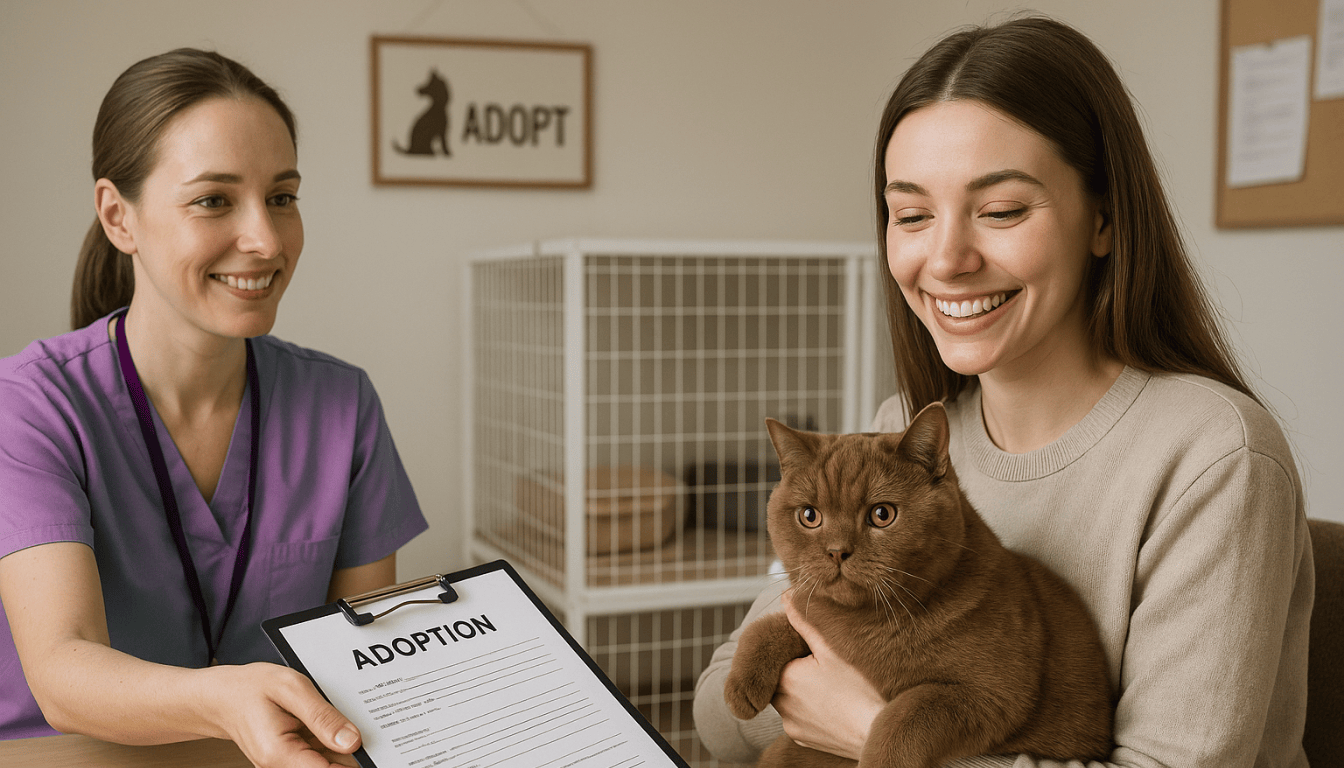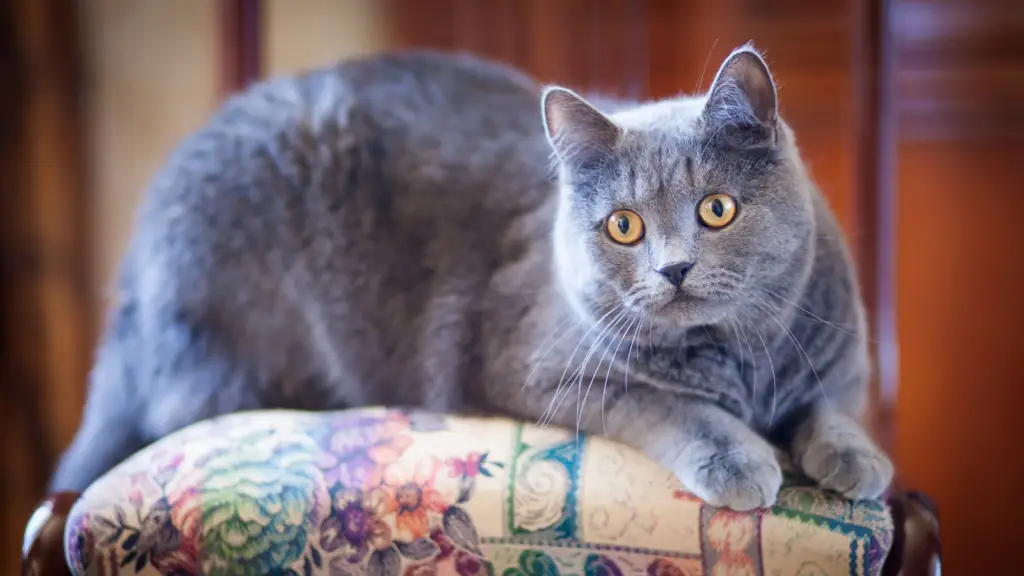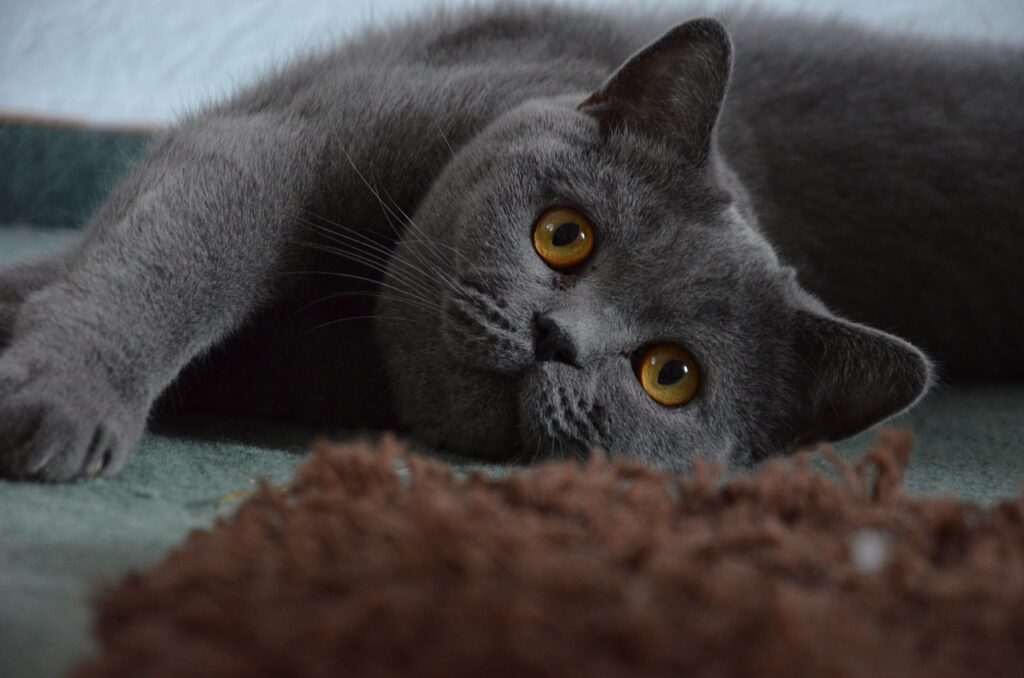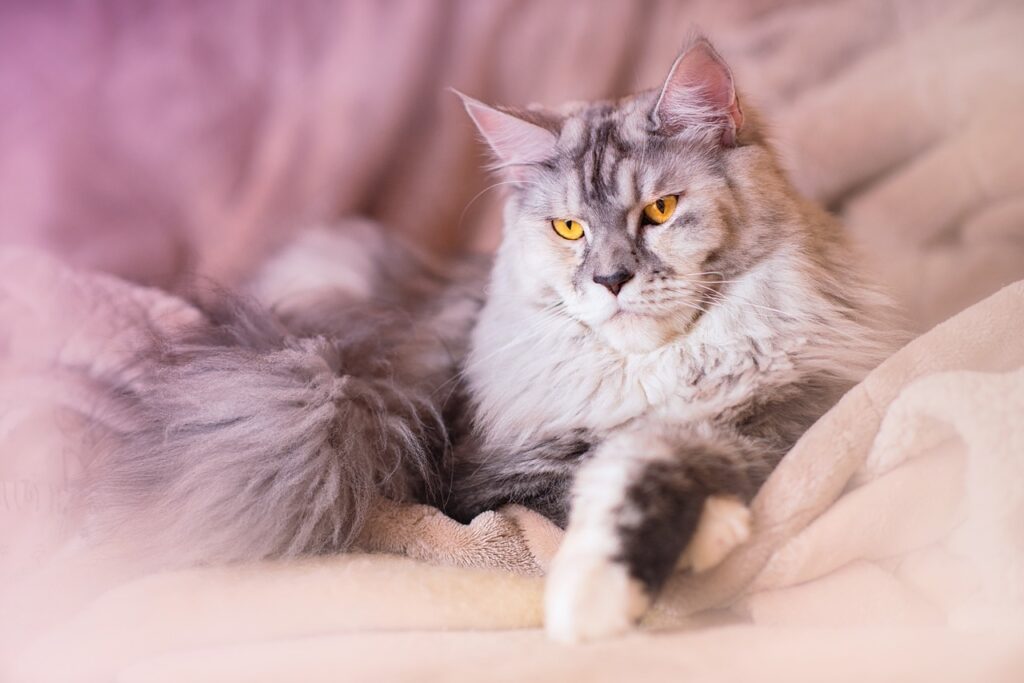Acquiring a pet is an exciting and rewarding venture, yet there is much responsibility involved. For individuals contemplating a furry companion, the brown British Shorthair cat is the ideal choice. With its sturdy build, gorgeous face, and relaxed temperament, these cats make excellent pets for various families. But prior to bringing in a brown British Shorthair into your home, it’s important to understand their specific requirements and nature so that they settle well in their new environment.
Here in this article, we will be discussing all about the brown British Shorthair cat, including their temperament, coat care, health considerations, and more. After reading this article, you will have all you need to know to determine if this lovely breed is suitable for your home and lifestyle.
What is a Brown British Shorthair Cat
The Brown British Shorthair is one of the world’s oldest and most sought-after breeds, and its brown variant adds to its beauty with its coat color as rich golden-brown. Characterized by their round faces, large and expressive eyes, and sturdy stance, the cats are extremely endearing and relaxed, and pet keepers love them.
Physical Characteristics of the Brown British Shorthair
- Coat Color: While the British Shorthair comes in a wide range of colors and patterns, the brown color has a deep, golden-brown or chestnut coat. They have a short, dense, plush coat, which makes them look rounded and cuddly.
- Body Shape: The cats are large to medium size with a muscular and rounded body. They possess short legs and large round heads, which give them a stocky but firm appearance.
- Eyes: Their eyes are usually gold, copper, or green, complementing their coat color and making them look dramatic.
Temperament and Personality
The brown British Shorthair cat is a laid-back, self-reliant, and loving breed. What you can expect from their nature is as follows:
- Easy and Relaxed: British Shorthairs have been known to be “dog-like” because they are so laid back. They are happy to simply sit back and relax with their owner and have quiet companionship. They are not attention-demanding but will insist on it in their own time if it is wanted.
- Affectionate: While not usually clingy, brown British Shorthairs love their family members and like to be around them. They’ll follow you everywhere or curl up next to you for hugs, but only do so on their own terms.
- Patient and Gentle: These cats are wonderful with children and other pets because they have a gentle and patient temperament. They are not easily stressed or irritated, thus they are great companions for busy families.
- Intelligent but Independent: While they are smart and can be trained to do tricks or respond to commands, they are also quite independent and like to have their space. Their self-sufficient nature means they are content being left alone for a while, but they will appreciate your attention when you’re around.
Health and Lifespan
The brown British Shorthair cat is a relatively sound breed, but as with all cats, can be prone to some health issues. Being aware of these risks will allow you to provide your new pet with the best possible care.
Common Health Concerns
- Obesity: Because they are so relaxed, British Shorthairs will become lazy if not properly stimulated. Their diet must be monitored, and they must get regular exercise to prevent obesity, which can encourage other diseases like diabetes or heart disease.
- Hypertrophic Cardiomyopathy (HCM): Similar to other purebred cats, British Shorthairs are susceptible to HCM, a heart condition that thickens the walls of the heart. Although it’s not necessarily a death sentence, it can impair their quality of life, so they should see a vet regularly.
- Dental Health: British Shorthairs have the potential to have dental problems, so tooth brushing at home and professional cleaning must be done regularly in order to prevent gum disease and tooth loss.
Average Lifespan
The average lifespan of a brown British Shorthair cat is 12 to 20 years, depending on their health, diet, and living conditions. They will have a long, happy life if they get regular vet visits and a healthy lifestyle.
Grooming and Care
Despite their soft coat, the brown British Shorthair cat is not actually a high-maintenance cat when it comes to grooming. This is how you can make them look their best:
Coat Care
- Brushing: While their short coat does not require much grooming at all, brushing your British Shorthair’s coat once a week will deter excessive shedding and hairballs. Regular brushing also keeps their coat healthy and shiny.
- Bathing: British Shorthairs do not require bathing often, but an occasional wash can be done to strip the coat of excessive oils. Only use shampoos that are suitable for cats and that will not make their skin become irritated.
- Nail Clipping: Their nails should be trimmed regularly to avoid their nails becoming too sharp or for causing harm.
Ear and Eye Care
Check your cat’s ears and eyes for infection or irritation. British Shorthairs are not particularly prone to ear problems, but checking them regularly will help identify any issues early on.
Diet and Nutrition
You should provide your brown British Shorthair cat with a balanced and good quality diet to help promote their health and longevity. Their diet should include protein, fats, and essential nutrients to power their muscular build and health.
Suggested Diet
- Protein-rich: British Shorthairs need a high protein diet from animal sources such as chicken, turkey, and fish. These proteins keep their muscles in shape and provide them with energy they need to make it through the day.
- Low Carb: Although cats are obligate carnivores and do not require carbs, low-carb foods such as sweet potatoes or peas can come in handy as an energy source. Avoid foods rich in carbs, which can cause obesity.
- Wet and Dry Food: Having a combination of wet and dry food is preferable. Wet food ensures they are hydrated, whereas dry food is ideal for their teeth.
Training and Behavior
Even though the brown British Shorthair cat is standoffish, they can be trained to respond to commands or use a litter box appropriately. They are fastidious animals and will likely be a cinch to litter train.
Behavior Tips
- Scratching: Provide your British Shorthair with a scratching post so they can indulge in their natural instincts and keep their nails healthy.
- Playtime: Not overly high-strung, these cats do enjoy interactive play. Use toys like feather wands or laser pointers to stimulate their brain and keep their body active.
- Litter Box: British Shorthairs are usually tidy, and they will naturally use the litter box with minimum prompting. Make certain to keep the litter box clean and in a quiet, convenient location.
Preparing for Your New Brown British Shorthair Cat
Prior to adopting a brown British Shorthair cat, make certain that your house is cat-friendly and prepared for their visit:
- Space: Although they are laid back, the British Shorthairs prefer having a space in which they can lounge and just relax. Provide them with a cozy bed and a secluded area where they can retreat.
- Toys and Enrichment: Although they are not hyperactive, the British Shorthairs also need some stimulation for their minds. Provide them with toys that will challenge their brains, such as puzzle toys or interactive toys.
- Healthcare: Schedule an initial health checkup with your vet shortly after bringing home the new kitty. Regular vaccinations, flea control, and dental checks will keep them healthy well into geriatric years.
Conclusion
Having a brown British Shorthair cat as a pet can be a life-altering experience with plenty of happiness and companionship entering your life. If you know about their needs and characteristics, you can provide them with the best care and set up a nurturing environment where they can happily reside.
If you’re ready to bring a brown British Shorthair cat into your life, remember that occasional visits to the vet, good grooming, and a proper diet are all important for their overall health and happiness. Worry not if you have questions or issues; just phone your vet and they’ll be happy to provide personal guidance especially tailored to your new furry friend.
Best wishes adopting, and happy with your new pal!
Yuns Legdm is a passionate advocate for pet care and the founder of this website, dedicated to providing valuable information for fellow pet lovers and veterinary professionals worldwide. With a deep love for animals, Yuns created this platform to connect passionate pet owners with expert insights from veterinarians around the globe.
This website grows with you—the passionate pet owners and veterinary experts—creating a trusted space where knowledge, experience, and love for animals come together. Whether you’re seeking advice on pet health, nutrition, or general well-being, this platform is here to support you on your journey of responsible and loving pet care.





